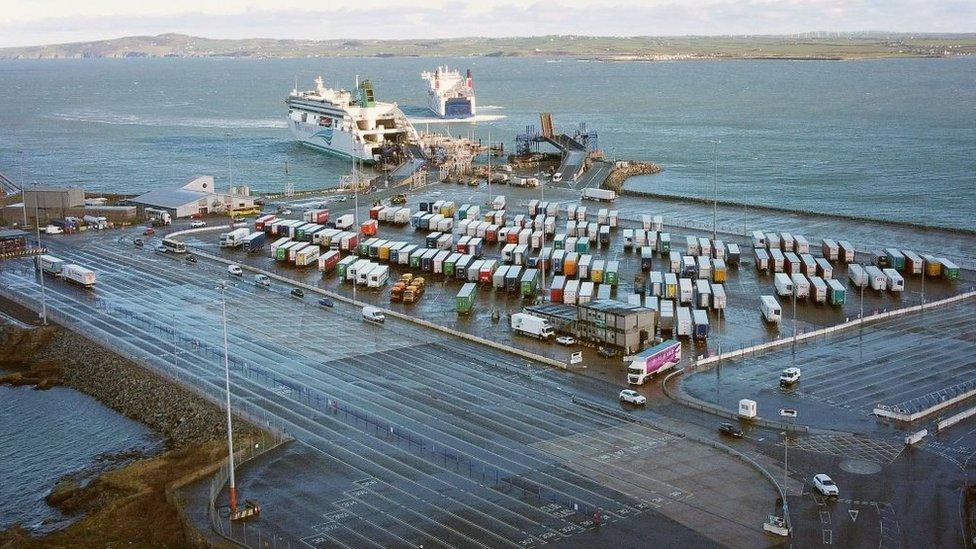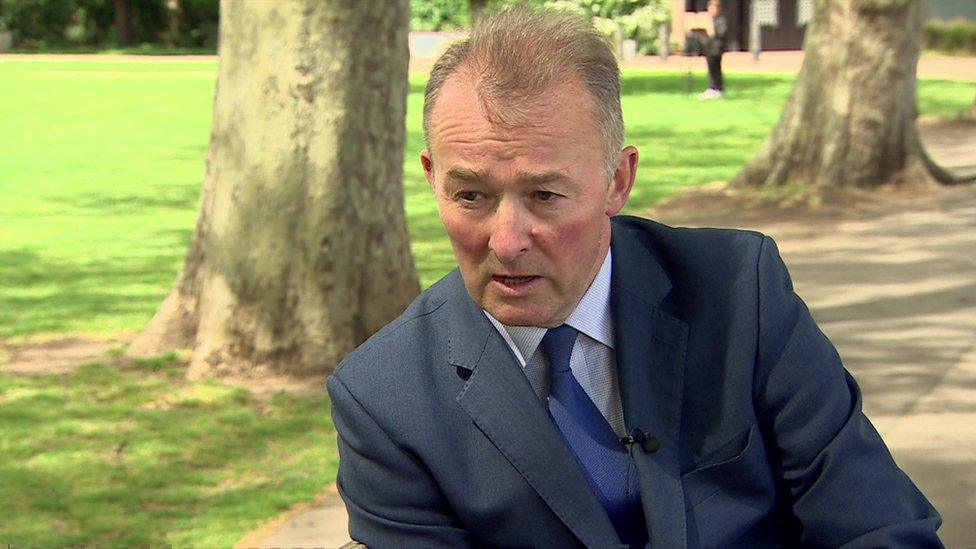Real determination to set up freeport in Wales, says minister
- Published

Holyhead has expressed an interest in gaining freeport status
The UK government will develop a freeport in Wales even if the Welsh government does not agree, the Welsh secretary has said.
Simon Hart told a committee of MPs "we would rather do it as a team effort than have to resort to reserved powers, but it is a commitment".
A freeport is a zone where companies can pay less taxes and have lower business rates.
Welsh ministers reject accusations they are an obstacle to freeports.
In May they said they had raised concerns and sought an agreement on the plans.
Mr Hart acknowledged that the Welsh government determines business rates and planning in Wales, but said there was a "real determination" from UK government departments, local authorities and port authorities to set up a freeport in Wales.
Mr Hart told the Welsh Affairs Select Committee a freeport could create 15,000 Welsh jobs.

What are freeports?
Freeports are usually located around shipping ports, or airports. Goods that arrive into freeports from abroad are not subject to the tax charges, called tariffs, that are normally paid.
These taxes are only paid if the goods leave the freeport and are moved elsewhere in the UK.
Otherwise, they are sent overseas without the charges being paid.
The UK had seven freeports between 1984 and 2012, including one in Cardiff.
At the Budget, in March, the UK Treasury announced eight for England at East Midlands Airport, Felixstowe and Harwich, Humber region, Liverpool City Region, Plymouth, Solent, Thames and Teesside.

Mr Hart said freeports were a "fantastic opportunity for Wales and if the accusation is I'm going to force jobs and prosperity on Wales I plead guilty in front of this committee".
"We can do this - we do have the legislative capability," he told MPs.
Ynys Môn Conservative MP Virginia Crosbie told the committee that an Italian company would bring 300 jobs to Anglesey if it were to have a freeport.
Mr Hart replied: "I keep saying to people it is a case of when not if."

Simon Hart says he would rather work with the Welsh government on this if he can
Mr Hart also claimed that agreement with the Welsh government was going well until the first minister intervened.
"We were so there, so nearly there before the Senedd elections and the outgoing minister at the time, Ken Skates, I think was pretty sympathetic to what we were trying to do," he said.
"Then suddenly, at the very last minute, we were told as a result of an intervention from the first minister [Mark Drakeford], but I can't confirm that, perhaps you could ask him, that suddenly they had gone cold on the idea, and we are to this day trying to warm them up again."
In March, Mr Drakeford told MPs his concerns over introducing them in Wales were "resolvable" but that the "ball" was in UK ministers' court.
Responding to Mr Hart's comments to MPs, Wales' Economy Minister Vaughan Gething called for a "much more sensible conversation about this", claiming the UK government had not yet explained "what the confirmed offer or suggestion for a freeport in Wales is".
"What cannot happen is that free ports in England receive £17m more investment than a freeport in Wales, and we're then told what we must do with our responsibilities," he told the BBC.
"The UK government have to be straight with us, and we need to see what's actually going to happen, and how that might take place in Wales.
"It simply can't be a fact of the UK government deciding for us, how they are going to use our responsibilities."